Detoxify Your Body Naturally: A Guide to Reducing Heavy Metals in the Body
Heavy metals, such as mercury, lead, and cadmium, can accumulate in our bodies over time, leading to various health issues. While there's no magic cure, incorporating natural methods into your lifestyle can help support your body's natural detoxification processes.
Chelation:
Chelation is a process where a molecule, called a chelating agent, binds to a metal ion. This binding action can help remove harmful metals, like lead or mercury, from the body. According to research, there are foods and natural sources that can reduce absorption of toxic metals and aid in natural detoxification through the process of chelation. Examples of these foods include:
Lifestyle Modifications
Remember, while these natural methods can support your body's detoxification processes, they may not be sufficient for significant exposure or heavy metal poisoning.
By incorporating these natural approaches into your lifestyle, you can help your body stay healthy and vibrant.
Resources:
Kuan, Wen-Hui, et al. “Excretion of Ni, Pb, Cu, as, and Hg in Sweat under Two Sweating Conditions.” International Journal of Environmental Research and Public Health, U.S. National Library of Medicine, 4 Apr. 2022, pmc.ncbi.nlm.nih.gov/articles/PMC8998800/.
Sears, Margaret E. “Chelation: Harnessing and Enhancing Heavy Metal Detoxification--a Review.” TheScientificWorldJournal, U.S. National Library of Medicine, 18 Apr. 2013, pmc.ncbi.nlm.nih.gov/articles/PMC3654245/#sec1.
Chelation:
Chelation is a process where a molecule, called a chelating agent, binds to a metal ion. This binding action can help remove harmful metals, like lead or mercury, from the body. According to research, there are foods and natural sources that can reduce absorption of toxic metals and aid in natural detoxification through the process of chelation. Examples of these foods include:
- Fiber-Rich Foods: Foods high in fiber, like fruits, vegetables, and whole grains, can bind to heavy metals and aid in their elimination. In contrast, some soluble fiber can increase absorption of metals like cadmium.
- Sulfur-Rich Foods: Garlic, onions, and vegetables like broccoli contain sulfur compounds that can help chelate heavy metals, making them easier to expel. Some studies on garlic also suggest that it can prevent cadmium-induced kidney damage and lower lead-induced oxidative damage.
- Antioxidant-Rich Foods: Berries, citrus fruits, and leafy green vegetables are packed with antioxidants, which can protect cells from oxidative damage caused by heavy metals.
- Chlorella: This algae is renowned for its ability to bind to heavy metals and facilitate their removal from the body.
- Cilantro: Some studies suggest that cilantro may help chelate and eliminate heavy metals, particularly mercury. In animal studies it reduced the absorption of lead into the bones.
- Spirulina: This blue-green algae is rich in nutrients and antioxidants, which can support the body's detoxification processes.
Lifestyle Modifications
- Hydration: Drinking plenty of water is essential for flushing toxins out of the body.
- Regular Exercise: Physical activity stimulates the lymphatic system, which plays a crucial role in detoxification. The sweat that is produced during exercise has a higher concentration of nickel, lead, copper, and arsenic than other sweat induction methods such as sitting in a sauna or hot environment.
- Saunas: While this method has been shown to primarily be effective at removing mercury, it can still be a method to help eliminate heavy metals through the skin.
- Limit Exposure: Reduce exposure to heavy metals by avoiding contaminated water sources, choosing organic foods, and minimizing exposure to industrial pollutants.
Remember, while these natural methods can support your body's detoxification processes, they may not be sufficient for significant exposure or heavy metal poisoning.
By incorporating these natural approaches into your lifestyle, you can help your body stay healthy and vibrant.
Resources:
Kuan, Wen-Hui, et al. “Excretion of Ni, Pb, Cu, as, and Hg in Sweat under Two Sweating Conditions.” International Journal of Environmental Research and Public Health, U.S. National Library of Medicine, 4 Apr. 2022, pmc.ncbi.nlm.nih.gov/articles/PMC8998800/.
Sears, Margaret E. “Chelation: Harnessing and Enhancing Heavy Metal Detoxification--a Review.” TheScientificWorldJournal, U.S. National Library of Medicine, 18 Apr. 2013, pmc.ncbi.nlm.nih.gov/articles/PMC3654245/#sec1.
Posted in Health
Recent
Beyond Probiotics: Why Prebiotics are Essential for Gut Health
February 25th, 2025
Exploring the Delicious World of Fermented Foods
February 20th, 2025
The Sweet Skeptic: Are Natural Sugar Replacements Really That Sweet?
February 18th, 2025
Ditch the Artificial Dyes: Embrace the Power of Natural Food Coloring
February 13th, 2025
Why Mighty Magnesium Matters
February 6th, 2025
Archive
2025
January
Detoxify Your Body Naturally: A Guide to Reducing Heavy Metals in the BodyAntioxidant Power: Your Body's Natural DefenseThe Sweet Power of Honey: More Than Just a SweetenerDecoding Kombucha: Sparkling Sippable ScienceVitamin D and How The Human Body D-pends on itStrength Training: Not Just for Bodybuilders
February
Flavorful and Functional: Herbs and Spices for Health and HappinessWhy Mighty Magnesium MattersDitch the Artificial Dyes: Embrace the Power of Natural Food ColoringThe Sweet Skeptic: Are Natural Sugar Replacements Really That Sweet?Exploring the Delicious World of Fermented FoodsBeyond Probiotics: Why Prebiotics are Essential for Gut Health
2024
December
A Brief History of Kombucha: From Ancient Elixir to Modern DelightThe Mysterious World of "Natural Flavors"The Case Against Seed Oils: A Controversial TopicThe Not so Sweet Truth: Why Refined Sugar is a Red FlagYour Gut: A Microbial EcosystemFermented Foods: for Your Gut and Good HealthHeavy Metals in Our Food: A Hidden Threat

No Comments